I made the CodePipeline to build the source code from CodeCommit to ECR by cdk
When deploying this cdk code, somehow the key named like this
codepipeline-cdkmynavirepomynavipipelinefe7f8d68 is made in KMS customer managed key
I am not sure why this is made, and I don't want to use this.
Why or where this key is made?
const adminPipeline = new codepipeline.Pipeline(this, 'mynaviPipeline', {
pipelineName: 'cdk-mynavi-pl',
});
const mynavi_cc_repo_name = 'cdk-mynavi-cc'
const mynavi_cc_repo = new codecommit.Repository(this,
"mynavi-cc-repo",{
repositoryName: mynavi_cc_repo_name,
description:"for resizer repo"
})
const adminBuildProject = new codebuild.PipelineProject(this, 'adminBuildproject', {
environment: {
buildImage:codebuild.LinuxBuildImage.STANDARD_4_0,
privileged:true,
},
buildSpec: codebuild.BuildSpec.fromSourceFilename("./buildspec.yml")
});
const adminSourceOutput = new codepipeline.Artifact();
const adminSourceAction = new cdk.aws_codepipeline_actions.CodeCommitSourceAction({
actionName: 'AdminSource',
repository: mynavi_cc_repo,
output: adminSourceOutput,
trigger: cdk.aws_codepipeline_actions.CodeCommitTrigger.POLL,
})
const dockerHubSecretArn = 'arn:aws:secretsmanager:ap-northeast-1:678100228231:secret:docker_login-TBFA5B';
const dockerHubSecret = secretsmanager.Secret.fromSecretCompleteArn(this, 'SecretFromCompleteArn', dockerHubSecretArn);
dockerHubSecret.grantRead(adminBuildProject)
cronEcrRepo.grantPullPush(adminBuildProject)
djangoEcrRepo.grantPullPush(adminBuildProject)
nginxEcrRepo.grantPullPush(adminBuildProject)
const adminBuildOutput = new codepipeline.Artifact();
const adminBuildAction = new cdk.aws_codepipeline_actions.CodeBuildAction({
actionName: 'AdminCodeBuild',
project: adminBuildProject,
input: adminSourceOutput,
outputs: [adminBuildOutput]
});
adminPipeline.addStage({
stageName: "mynaviSource",
actions: [adminSourceAction],
});
adminPipeline.addStage({
stageName : "mynaviBuild",
actions: [adminBuildAction]
});
